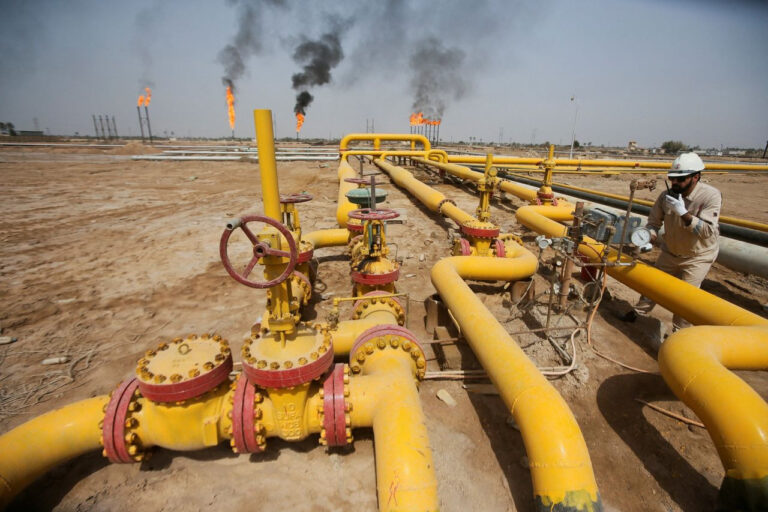Iraq and Turkmenistan agreed to the terms of a gas deal on Wednesday, marking another important step in Iraqi efforts to diversify its supply.
An Iraqi delegation led by Electricity Minister Ziad Ali Fadel met with representatives of Turkmengaz, Turkmenistan’s state gas company, in the Turkmen capital of Ashgabat on Wednesday. During the meeting, the two sides signed a protocol stipulating that Turkmenistan will supply Iraq with 9 billion cubic meters of gas per year. In a statement on Thursday, Turkmenistan’s Foreign Ministry said the gas will be transported via Iran for five years.
Iraq had no immediate comment on the deal, and Turkmenistan did not provide financial details. Why it matters: Iraq and Turkmenistan have been working toward a gas deal for some time. The two countries reached preliminary agreement in August, when a delegation from Turkmengaz visited Baghdad, and the two sides signed a memorandum of understanding, according to S&P Global Commodity Insights.
Iraq has the 12th largest natural gas reserves in the world, but lacks the infrastructure to move the gas from its oil production areas, where most of it is located. As a result, it flares, or burns, most of its gas.
In recent years, Iraq has relied on neighboring Iran for gas and electricity imports, with the Islamic Republic’s resources accounting for some 40% of Iraq’s power. The two reached an agreement in July whereby Iraq pays for Iran’s natural gas via oil transfers. Their relationship has, however, been strained.
Iran sometimes decreases gas exports to Iraq due to increased Iranian domestic demand or to exert pressure on Baghdad for delayed payments. Such cuts lead to public anger in Iraq, particularly during the hot summer months, according to a July report from the Washington Institute for Near East Policy.
US sanctions on Iran’s energy sector further complicate Iraq’s dependence on Iranian gas by requiring that waivers be obtained. In July, Reuters reported that the United States had given Iraq a new 120-day waiver to purchase Iranian electricity.
It is within this context that Iraq is seeking to diversify its sources for gas. In July, it signed a deal with France’s TotalEnergies to recover gas flares from oil fields and use them to supply power plants. Iraq could play a larger role in the global competition for natural gas as a result of the Russian invasion of Ukraine, journalist Simon Watkins wrote for OilPrice.com last month.
“Not only does it have the potential to become the number one crude oil producer in the world — and one of the top gas suppliers too — but its geopolitical position is crucial to what happens in the global security architecture,” he wrote.
Meanwhile, Turkmenistan has the fourth largest gas reserves, accounting for approximately 10% of reserves globally, according to the World Bank. Know more: Turkmenistan’s gas ties with Iran are likewise developing. Turkmenistan cut gas exports to Iran in 2017 over a debt dispute, but in May, Iranian Oil Minister Javad Owji said the debt had been paid, the official Islamic Republic News Agency reported.
Turkmenistan resumed gas exports to Iran in August, and negotiations have begun for a long-term arrangement, according to a report from the Caspian Policy Center that month. Like Iraq, Iran has infrastructure problems that prevent it from fully exploiting its vast gas reserves, according to the center.
Source: Al Monitor


